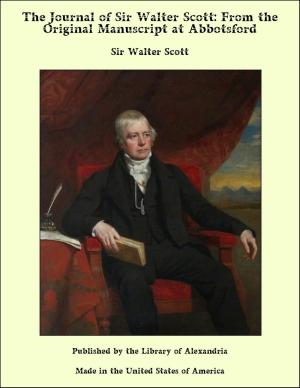The Bride of Fort Edward
Nonfiction, Religion & Spirituality, New Age, History, Fiction & Literature| Author: | Delia Bacon | ISBN: | 9781465559043 |
| Publisher: | Library of Alexandria | Publication: | July 29, 2009 |
| Imprint: | Library of Alexandria | Language: | English |
| Author: | Delia Bacon |
| ISBN: | 9781465559043 |
| Publisher: | Library of Alexandria |
| Publication: | July 29, 2009 |
| Imprint: | Library of Alexandria |
| Language: | English |
I am extremely anxious to guard against any misconception of the design of this little work. I therefore take the liberty of apprising the reader beforehand, that it is not a Play. It was not intended for the stage, and properly is not capable of representation. I have chosen the form of the DIALOGUE as best suited to my purpose in presenting anew the passions and events of a day long buried in the past, but it is the dialogue in scenes arranged simply with reference to the impressions of the Reader, and wholly unadapted to the requirements of the actual stage. The plan here chosen, involves throughout the repose, the thought, and sentiment of Actual life, instead of the hurried action, the crowded plot, the theatrical elevation which the Stage necessarily demands of the pure Drama. I have only to ask that I may not be condemned for failing to fulfil the conditions of a species of writing which I have not attempted. The story involved in these Dialogues is essentially connected with a well-known crisis in our National History; nay, it is itself a portion of the historic record, and as such, even with many of its most trifling minutiae, is imbedded in our earliest recollections; but it is rather in its relation to the abstract truth it embodies,—as exhibiting a law in the relation of the human mind to its Invisible protector—the apparent sacrifice of the individual in the grand movements for the race,—it is in this light, rather than as an historical exhibition, that I venture to claim for it, as here presented, the indulgent attention of my readers. THE AUTHOR. New-York, July 7th, 1839
I am extremely anxious to guard against any misconception of the design of this little work. I therefore take the liberty of apprising the reader beforehand, that it is not a Play. It was not intended for the stage, and properly is not capable of representation. I have chosen the form of the DIALOGUE as best suited to my purpose in presenting anew the passions and events of a day long buried in the past, but it is the dialogue in scenes arranged simply with reference to the impressions of the Reader, and wholly unadapted to the requirements of the actual stage. The plan here chosen, involves throughout the repose, the thought, and sentiment of Actual life, instead of the hurried action, the crowded plot, the theatrical elevation which the Stage necessarily demands of the pure Drama. I have only to ask that I may not be condemned for failing to fulfil the conditions of a species of writing which I have not attempted. The story involved in these Dialogues is essentially connected with a well-known crisis in our National History; nay, it is itself a portion of the historic record, and as such, even with many of its most trifling minutiae, is imbedded in our earliest recollections; but it is rather in its relation to the abstract truth it embodies,—as exhibiting a law in the relation of the human mind to its Invisible protector—the apparent sacrifice of the individual in the grand movements for the race,—it is in this light, rather than as an historical exhibition, that I venture to claim for it, as here presented, the indulgent attention of my readers. THE AUTHOR. New-York, July 7th, 1839















